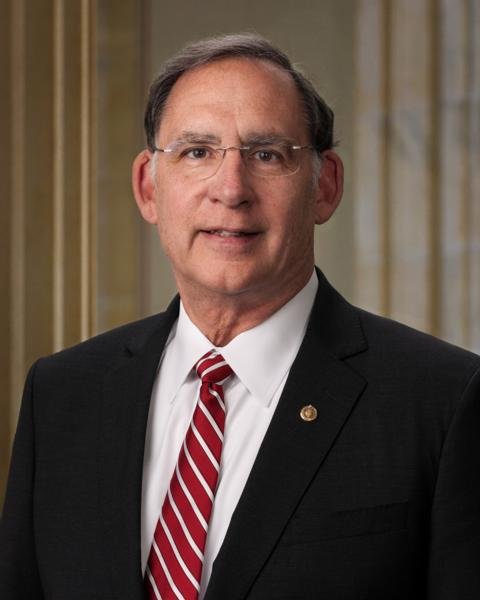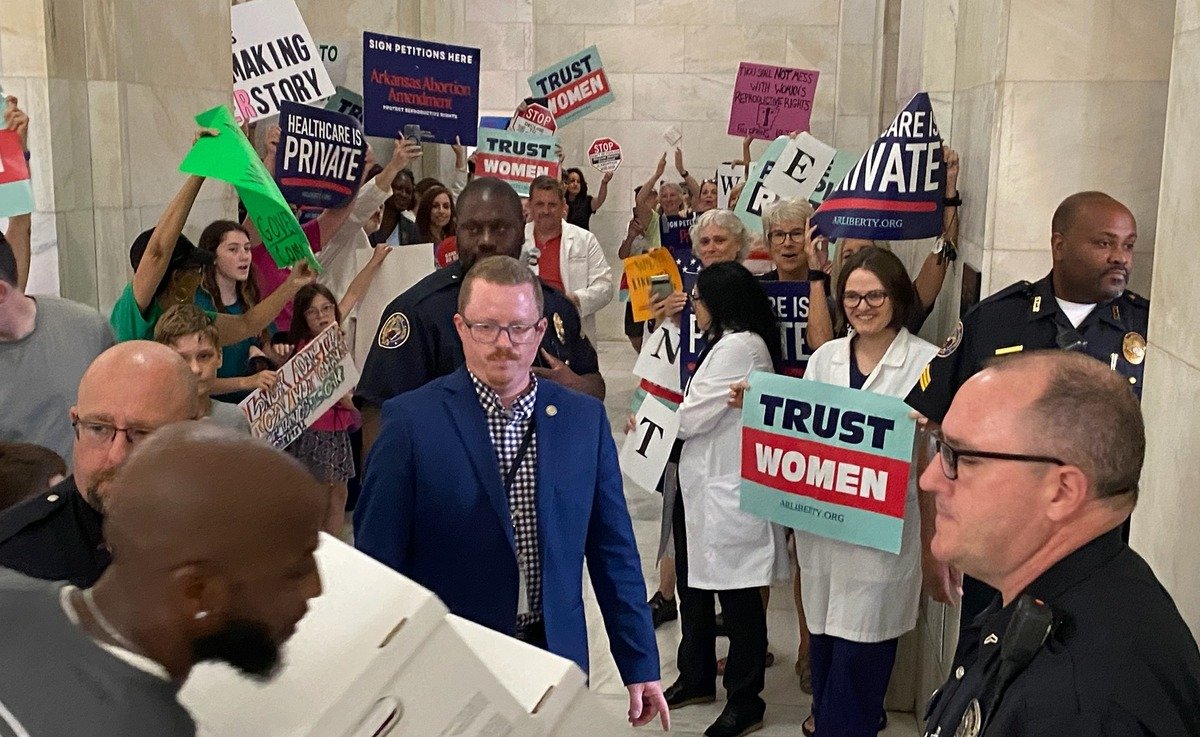The contest was held June 21-22 in Rogers at the 64th Annual Poultry Festival, hosted by The Poultry Federation. Sarah Lamb, 18, was the first-place chicken barbecue winner, and Laney Slate, 18, was the first-place turkey barbecue winner. Lamb and Slate will advance to compete at the national contest, which will be held at the National 4-H Poultry and Egg Conference in Louisville, Kentucky, from Nov. 20-21.
Andrew Bolton, extension instructor of poultry science for the University of Arkansas System Division of Agriculture, said the contest teaches participants important life skills.
“Food prep and food safety being first and foremost, from good sanitation practices to being conscious of the correct temperature that different meats need to reach to be safely cooked,” Bolton said. “This contest also pushes these youth to do research into the poultry industry, as well as some healthy living aspects as to why proteins like chicken and turkey are important.
Bolton said participants have also gained confidence in “their own abilities to get a grill lit, food prepped and then cooked all on their own.”
“They’ve learned how to be great critical thinkers in how they have developed their own sauces, marinades and rubs,” Bolton said. “I have also seen their creativity flourish when designing posters as part of their presentations on their choice of meat.”
Lamb has been a member of Arkansas 4-H in Howard County since she was five years old, competing in her county and district barbecue contests for the past four years. This year, she qualified for the state contest for the first time. Lamb attributes this success to changing up her seasoning blend, which remains a secret.
“I practice two times a month, and when I practice at home, I use a lot of different seasonings to figure out which ones I like,” Lamb said.
Slate has been a member of the Dayton 4-H Club in Sebastian County for nine years and began competing in the 4-H barbecue contest at the county level when she was nine years old. In 2021, she won first place in chicken barbecue at the state contest and advanced to the national level, where she placed fourth. Because she made it to the national competition with chicken barbecue, she wasn’t allowed to compete in the same category again, so she switched to turkey burgers for the 2024 competition.
“This year I had to practice a lot more, because the cooking process for turkey burgers versus a whole chicken is very different,” Slate said. “It’s almost two hours to cook a chicken, versus 30-45 minutes for the burgers. I had to learn that it’s okay for it to not take forever.
“With the burgers, you have to put in the ingredients to flavor it and patty it yourself, so finding the right consistency was difficult at first,” Slate said. “But once I got that down, I felt like it was fine.”
Practice and preparation
Lamb’s father taught her how to cook on a charcoal grill when she was 10 years old. When she learned the state contest would feature charcoal grills, she was relieved.
“It does take a lot of patience,” she said. “I’m the only one in my family who can do it.”
For her technique, Lamb said it’s important not to fuss over the chicken.
“I’ve learned to shut the lid and not look at my chicken for about 20 minutes, then look and see where the temperature falls,” she said. “To make it juicier, you barely touch it.”
Slate said that for her turkey burgers, breadcrumbs were key.
“You have to be careful because if you add too many, it dries them out and they fall apart when you cook them,” Slate said. “Finding the right ratio of breadcrumbs to the meat was the tricky part.”
Slate said she hopes to place within the top five at the national competition. She plans to work on her speech presentation, a significant percentage of contestants’ scores, in the meantime.
Slate said her favorite part of participating in the barbecue contest has been making new friends.
“I’ve met a lot of people who the only thing we have in common is cooking in that contest,” Slate said. “Some people I met in 2021, back at the national event, I still talk to them to this day. So, I’ve just enjoyed the friendships and people you meet along the way.”
Lamb said her 4-H record book — where 4-H members log all projects, contests, activities, events and skill development — has focused on food and nutrition, which she plans to pursue as a career.
“I’m going to culinary school a year from now because I would love to have my own bakery,” Lamb said. “It’ll be a bakery and a café, where I could serve food and sweets.”
For her fellow 4-H members interested in testing and improving their own barbecue skills, Lamb said she advises not to fear the grill.
“Don’t be intimidated by the grill, because it’s just a grill,” she said. “And if something happens, you’ll always have somebody to help you. When you get to know it, it’s more fun, because you can do anything on a grill.”
Slate said it’s also important for competitors to be able to adjust to circumstances out of their control.
“Being able to think quick on my feet has been important,” Slate said. “Since we cook outside, I’ve had to cook in the rain, the sleet and the snow. At the national level, it started sleeting and snowing on us, and then after we got done cooking, the sun came out. So, you never really know, and you just have to be prepared.”
The Arkansas 4-H youth development program is operated by the Cooperative Extension Service, the outreach arm of the Division of Agriculture. To learn more about Arkansas 4-H, visit 4h.uada.edu.
To learn about extension programs in Arkansas, contact your local Cooperative Extension Service agent or visit www.uaex.uada.edu. Follow us on X and Instagram at @AR_Extension. To learn more about Division of Agriculture research, visit the Arkansas Agricultural Experiment Station website: https://aaes.uada.edu. Follow on X at @ArkAgResearch. To learn more about the Division of Agriculture, visit https://uada.edu/. Follow us on X at @AgInArk.






















